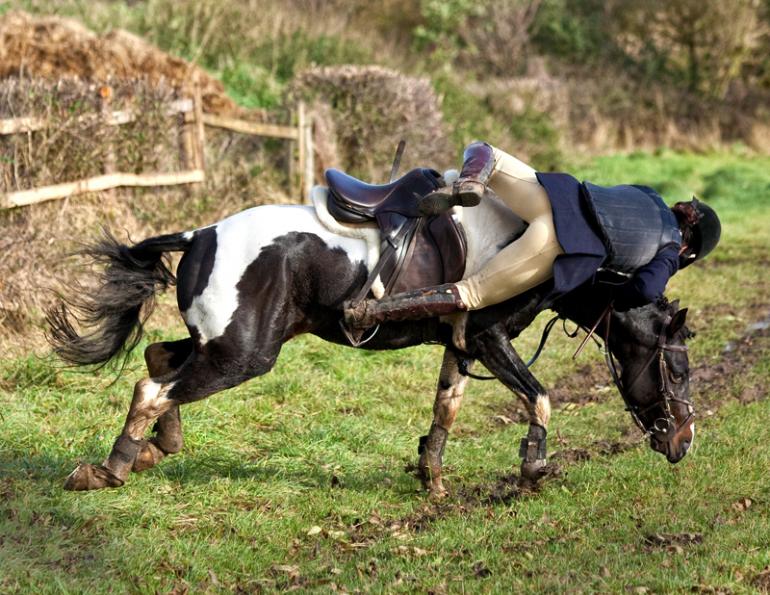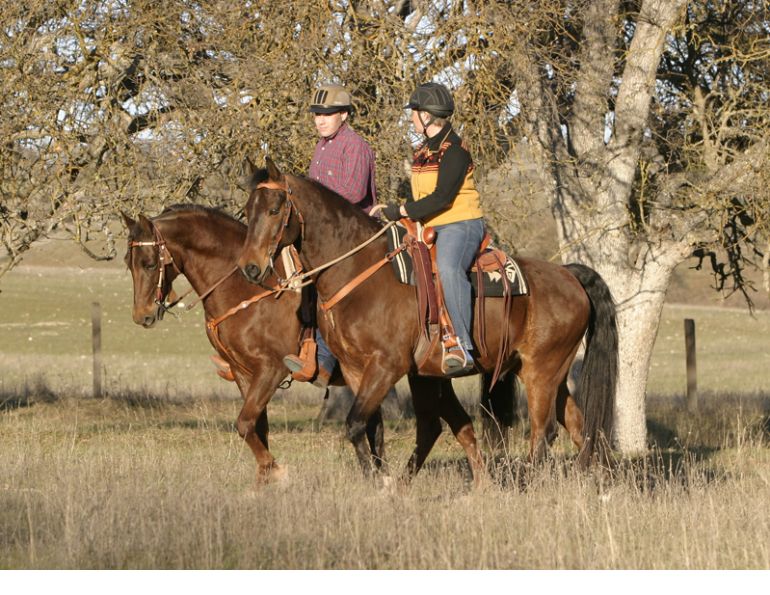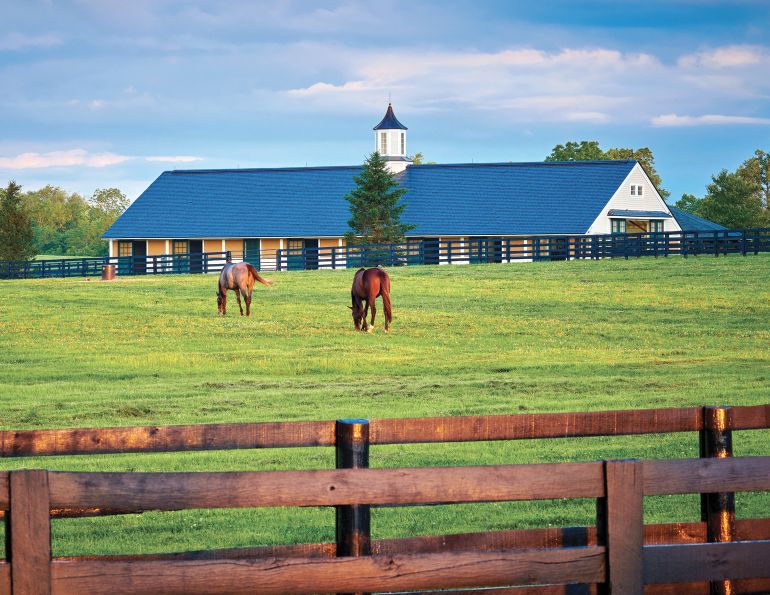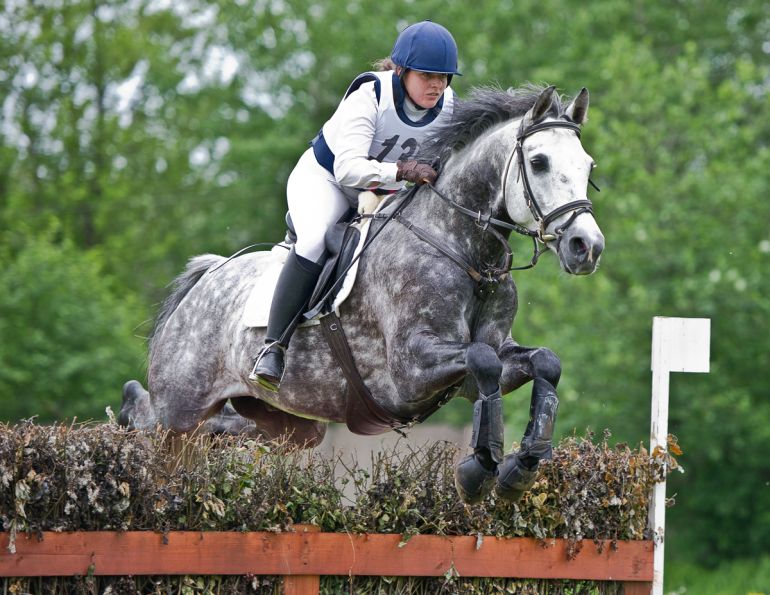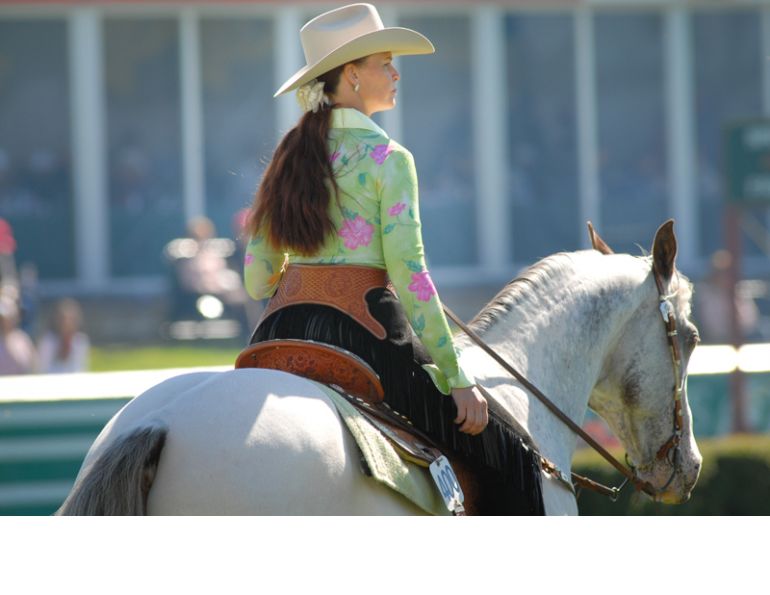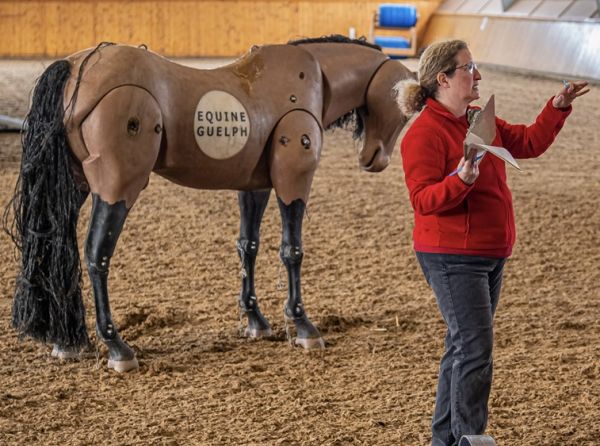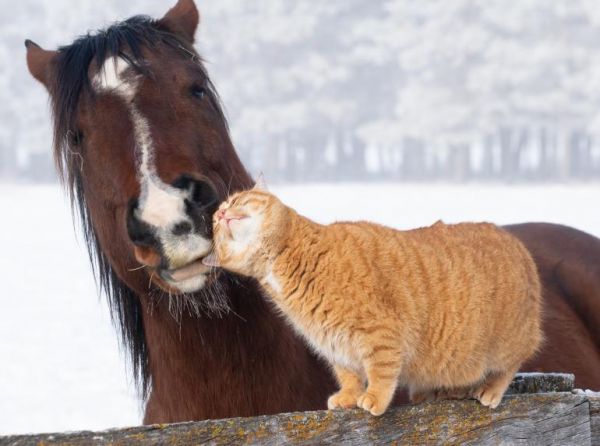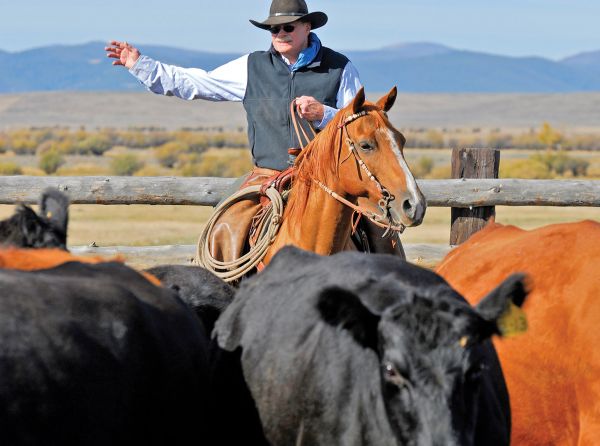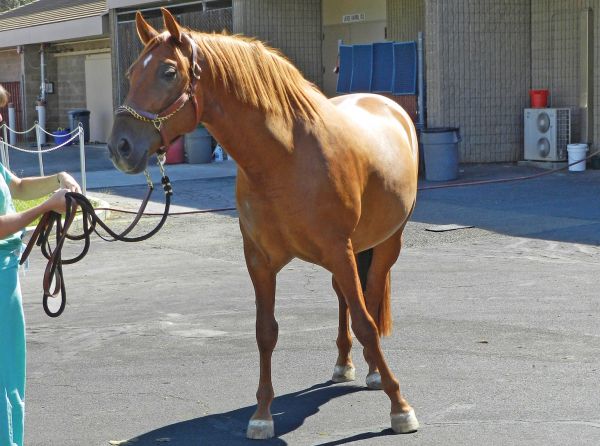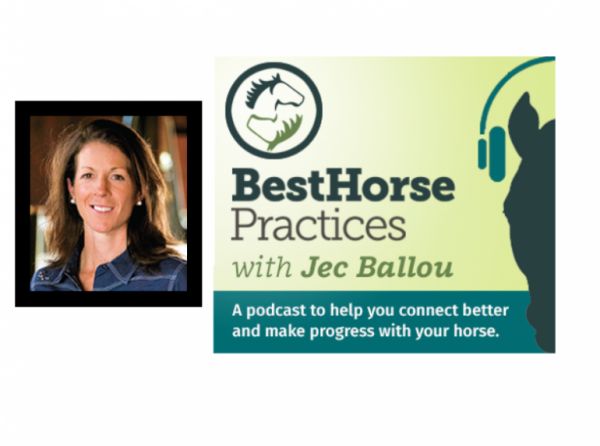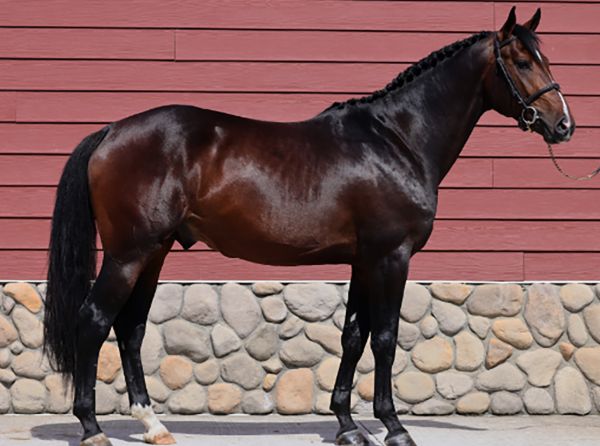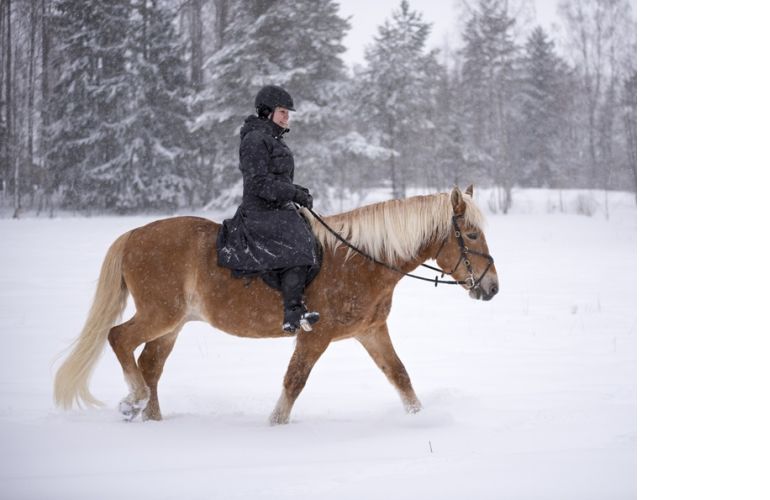By Annika McGivern, MSc, Sport and Exercise Psychology
What do you believe is more important in our work with horses: knowledge or curiosity? It’s easy to see why knowing the answer is desirable, but valuing knowledge over curiosity can create pressure, frustration, and low confidence. Not being able to use curiosity as a mental skill can cause us to wind up in never-ending cycles of frustration and perceived failure in our journey as equestrians.
Curiosity is having an open mind and the willingness to ask questions. It is the ability to go looking for more information, inspiration, new ideas, and new ways of thinking. I like to think about curiosity as a secret weapon for the mental game of performance. Just by learning how to become more curious, we can improve our self-confidence, regulate our nervous system, and regulate our emotions. Not only that, activating our curiosity is also an excellent way of practicing the mental skill of directing focus. Curiosity allows us to shift our internal state very quickly from unhelpful to helpful. There is no doubt that curiosity is an extremely useful mental skill.
Imagine that you are trying to train a young horse to move sideways away from single-leg pressure. You are doing your best to ask clearly and consistently, but the horse is not getting it. She is also getting increasingly tense and reactive as you continue to ask. She is stepping forwards instead of sideways and beginning to barge through your “woah” aids. You are feeling increasingly frustrated and tense. You are struggling to come up with a solution or an idea of what to try next. Unhelpful, self-critical thoughts start popping into your head, and you feel lost and discouraged.
Related: Demonstrate Emotional Intelligence
What might block you from being curious in a situation such as this? Lots of things, as it turns out! Putting pressure on yourself to know the answer can do it, or buying into the mindset that smart or talented riders should always know exactly what to do. When this happens, you can get caught up in the desire to prove yourself, but there isn’t space for curiosity in the pressure to always know the answer. Your own brain can sometimes block you from being curious through its desire to stick to the safety of the familiar, which can make new thinking and ideas, or new approaches, seem risky or uncomfortable. Despite the many obstacles to curiosity, we can teach ourselves to use it as a tool by learning to slow down, take a breath, and ask ourselves high-quality questions.
What are high quality questions?
The human brain loves answering questions and will immediately get to work finding an answer to any question we pose to ourselves. It’s important to recognise that all questions are not created equal. For example, asking ourselves Why am I terrible at this? would not be helpful because the answer is likely to be steeped in negative thinking and emotion. We want to encourage a more helpful style of thinking and creativity in the face of challenge. A high-quality question produces a new, helpful thought or perspective on the problem. Here are some examples of high-quality questions:
- What else could I try?
- How can I help my horse learn this?
- How can I make this five percent better?
- What do I need to learn to solve this challenge?
By remembering to use high-quality questions as a tool in our imagined scenario above, you will start to experience benefits such as increased confidence, less negative emotion, and a calmer nervous system.
Curiosity and Confidence
Every time we get curious in the face of a challenge, we encourage new thinking to help solve the problem. This proves to us that we’re capable of getting unstuck, moving through challenging situations, and finding a solution. We are strengthening our self-confidence muscle, which helps us to believe in ourselves and in our capacity to learn, improve, and solve problems.
Related: Equestrian Psychology - Remain Calm and Ride On

Curiosity is a keystone habit which unlocks a host of benefits, allowing us to quickly shift our internal state from unhelpful to helpful. Photo: Dreamstime/Sharon Kingston
Curiosity and Emotional Regulation
Curiosity also helps us to regulate our emotions. Emotional regulation is the ability to recognize when we’re in an unhelpful emotional place and utilize mental tools to diffuse or moderate negative emotions, such as frustration. Frustration happens when we feel stuck or trapped. We often feel frustrated when we can’t see the way forward. Research demonstrates that when you take a frustrated person and engage their curiosity, multiple different areas of the brain start to communicate with each other. This suggests that activating your curiosity wakes up your thinking, problem-solving mind and your creativity.
Related: Burnout in the Horse Industry
This is the part of the brain that helps us to solve the problem and move forward. Curiosity encourages us to see options when we’re stuck in the “deep end” of negative emotion, and find our way to more stable emotional ground. If negative emotion is the deep end, then curiosity is a lifejacket we can throw ourselves to moderate the negative emotion and create more positive emotions for ourselves.
Curiosity and Nervous System Regulation
The way that curiosity regulates our nervous system is quite similar. Frustration and other negative emotions are stressful and can activate the fight-or-flight part of our nervous system, further reducing our capacity to think clearly and creatively. By using high quality questions to activate curiosity, we’re redirecting the blood flow back out to the prefrontal cortex, which helps to regulate our nervous system to help us feel safe. Using high quality questions brings us back to focusing on the aspects of the situation we can control and influence, which will help us feel safer. By using curiosity, we can move from feeling unsafe to feeling safe, and further enable our thinking mind to come back online and solve the problem or find a solution.
Curiosity and Focus
Curiosity is a great way to practice shifting our focus, a key mental skill for performance. When we are feeling challenged, it’s easy to become fixated on the problem. Curiosity helps us shift our focus to solutions.
There are four styles of focus used in sport:
- Broad external: In a broad external focus we are paying attention to lots of the details in our environment.
- Broad internal: In a broad internal focus we are paying attention to different internal aspects of the self simultaneously, picking up on different sources of information from our internal state.
- Narrow external: In a narrow external focus we are focusing in specifically on one aspect of our environment.
- Narrow internal: In a narrow internal focus we are focusing specifically on one aspect of our internal experience.
All four focus styles can be useful depending on the context and situational demands of the task at hand; however, they are not all helpful in every situation. A key mental skill for athletes is the practiced ability to switch between the four focus styles when appropriate.
Related: Amateur, Professional, and Elite - 3 Tiers of Equestrian Sports in Canada
A narrow internal or external focus often accompanies frustration. We have become overly fixated on one thing that we’re not doing right, or on the one thing that our horse isn’t doing right. In that moment, we might benefit from switching our focus style. For example, in our imagined scenario above, you could move to a broad external focus to consider what you could use in your environment to help your horse learn or understand what you’re asking. The high-quality question: How else can I help my horse understand what I’m asking? helps us switch focus and find new ideas.
There’s a lot to learn in the world of mental skills for performance. I love finding and teaching simple skills like curiosity, which unlock a whole host of benefits. This type of skill is often referred to as a keystone habit. A keystone habit is one habit that, once mastered, unlocks many other helpful habits automatically. By mastering the skill of curiosity and turning it into a habit, riders will experience the benefit of improved self-confidence, improved emotional regulation, and improved nervous system regulation. In other words, consistently curious riders find it easier to believe in themselves, take on challenges, manage any negative emotions that arise, and stay calm in the face of difficult situations.
I challenge you to let go of the unhelpful belief that skilled riders always know what to do and instead embrace the belief that skilled riders do a great job of using curiosity to manage themselves and problem-solve to the benefit of themselves and their horses.
Related: The Power of Play with Our Horses
Related: The Mental Game - Sport Psychology for Equestrians
Main Photo: Shutterstock/24K-Production





